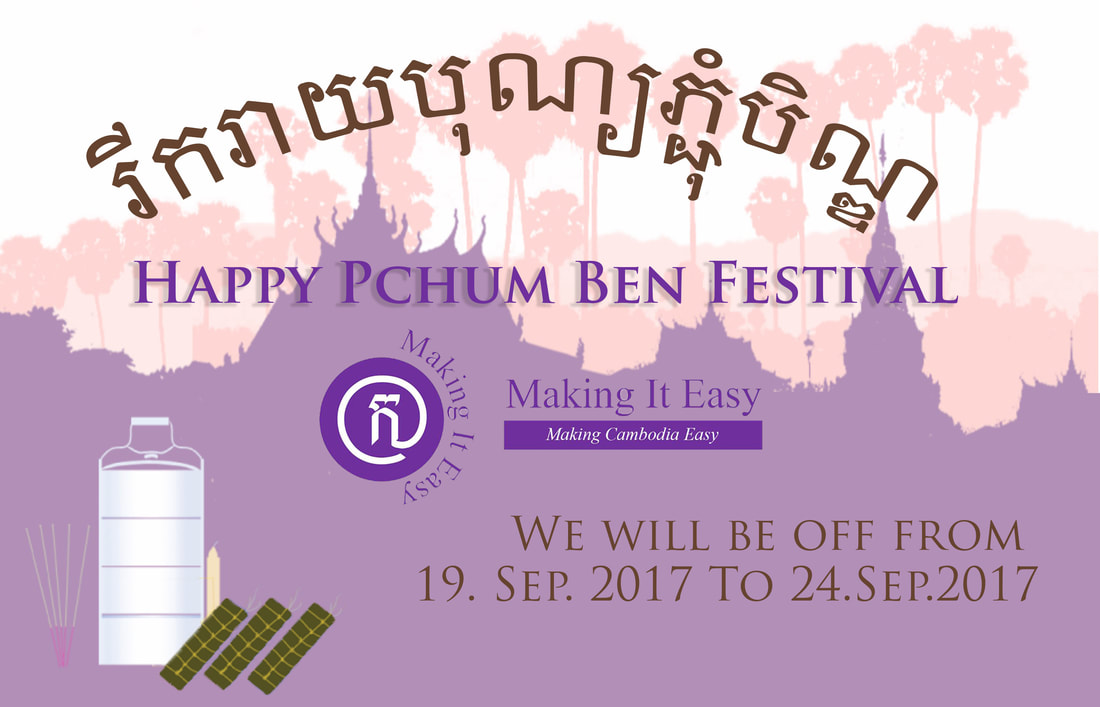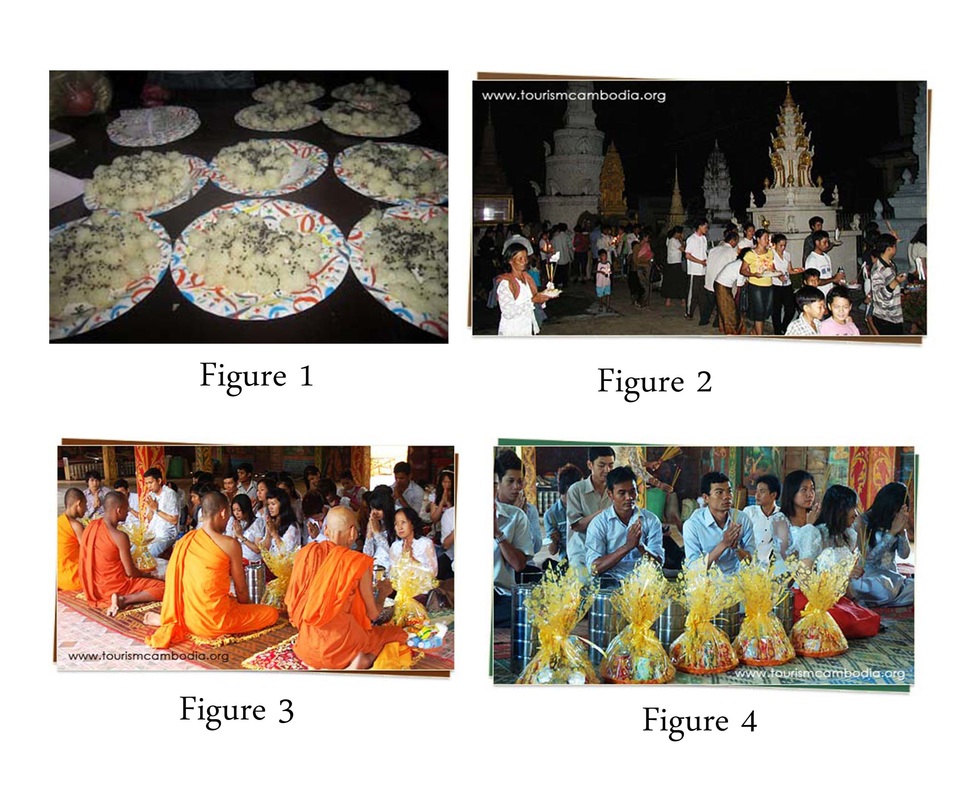Pchum Ben Festival or Festival of the Death is a Cambodian traditional festival which is celebrated annually. Cambodian people never miss celebrating it. The word “Pchum” means gathering, and “Ben” means ball rice.
(See Figure 1): Ball Rice (Bay Ben)
2. When and how long is this festival celebrated?
This festival lasts for 15 days, usually starting from late September through until early October. The actual dates are different every year depending on the lunar calendar.
Day 1 to day 14 is called “Kan Ben or Dak Ben”, which begins from the first day of the waning moon in Putrobut month, and the last day, Day 15, is denoted as Pchum Ben.
3. Why is it celebrated?
People traditionally celebrate Pchum Ben mainly to dedicate merits and bless dead spirits, who, unbeknown to them, may have become hungry ghosts (preta) after passing away. These gifts and merits could release them from hell.
4. What activities take place during this festival?
Some traditional activities include:
- throwing ball rice (Bay Ben) at Dawn or Bos Bay Ben in Khmer from Day 1 till Day 15. People may attend that ceremony as often as they wish. (See Figure 2):Cambodian people were throwing ball rice at the dawn at the pagoda
- offering food to the monks at pagodas, which is believed to be a meritorious act by Cambodian Buddhist followers. It’s said that spirits of the dead would visit seven pagodas to look for their living relatives to get food from them. If they cannot see them at one of the visited pagodas (Wat), the spirits will impose curses on their relatives. That is why living relatives do their best to offer as much food as possible during Dak Ben and Pchum Ben, even though they have difficulty making ends meet themselves. (See Figure 3 and 4): Cambodian people are offering food and teyyovotthoto-yellow wrapped stuff like candles, milk, water, tea, and sugar- monks at the pagoda
Cambodian people are entitled to have days off on this holiday. Normally they leave for their hometown in the provinces to celebrate this festival; however, those who were born in the city visit the temples either in Phnom Penh or the provinces; Besides the traditional activities, they have a good time with family by visiting resorts or their relatives’ houses. There are also some families who do not travel and stay in for the whole holiday.
Pchum Ben festival means a lot to Buddhist Cambodians. To maintain the culture, these traditional activities have been practiced from one generation to the next. Young people are asked by their elders to participate in the traditional rituals of the ceremony, for example, throwing ball rice, going to pagodas with them etc so that they will understand about the culture and continue to adhere to them for the future sake of their family. These traditional practices are not generally practised by Cambodian Christians, Muslims and people from other religious backgrounds because their beliefs are different.
References
| Pchum Ben Festival.pdf |



 RSS Feed
RSS Feed